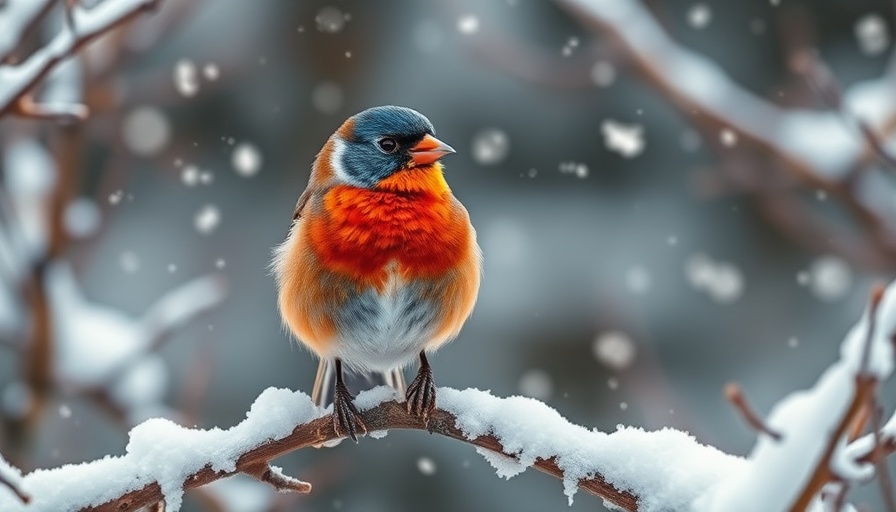
Nature's Resilient Awakening: Bird Songs in Winter
While the chill of winter settles over most northern landscapes, the sweet echoes of bird song can be heard rising from the frost-bitten earth. Even in the dead of February, species like the Black-capped Chickadee, House Finch, and American Robin greet the dawn with their melodies. This phenomenon might seem puzzling, yet it is a testament to the powerful influence of changing light conditions on avian behavior.
The Role of Daylight in Bird Behavior
As winter days lengthen, birds respond to the subtle cues of nature. Instead of waiting for warmth, which can be fleeting, these feathered harbingers begin their vocalizations, signaling the onset of their breeding season. According to scientific observations, birds like the House Finch sing not just out of excitement but as a part of their hormonal response to increasing day length. This early spring chorus is not a sign of immediate breeding, yet it lays the groundwork for the upcoming reproductive activities.
Insights from Other Experts
Geoff Carpentier elaborates on this in his article, pointing out that many birds begin to practice their mating songs in the fall. By late winter, as daylight increases, they are able to refine their displays, preparing for the competitive mating season ahead. In the same vein, Mark Faherty observed that birds such as the American Woodcock can be seen engaging in elaborate displays even in the coldest of weather as their hormonal systems react to the light. This intriguing behavior underscores a complex interplay between avian biology and environmental cues.
Understanding the Science Behind the Songs
Birds possess specialized photoreceptors in their brains that detect subtle changes in light, triggering hormonal cascades that prepare them for spring. This adaptation offers them a competitive advantage, ensuring they're ready when the time for mating comes. Although they are not yet breeding, these preemptive songs serve to establish territory and attract potential mates—demonstrating that the rhythm of nature follows a timeline all its own.
Bird lovers and naturalists alike are encouraged to enjoy these winter melodies. Observing these behaviors not only enhances our understanding of wildlife but also offers a small yet profound reminder of the resilience of life amid winter's grasp. As we huddle indoors against the cold, let us take a moment to listen to the hopeful songs of our avian counterparts.
Now is the time to appreciate the enchanting sounds of winter birds, as they remind us that even in the grayest days, life continues to sing. Find opportunities to witness this in your local parks or during winter hikes. Who knows what delightful surprises nature has in store?
For BirdNote, I’m Katherine Morgan, urging everyone to find solace in the songs of our feathered friends during this cold season.
 Add Row
Add Row  Add
Add 




 Add Row
Add Row  Add
Add 

Write A Comment